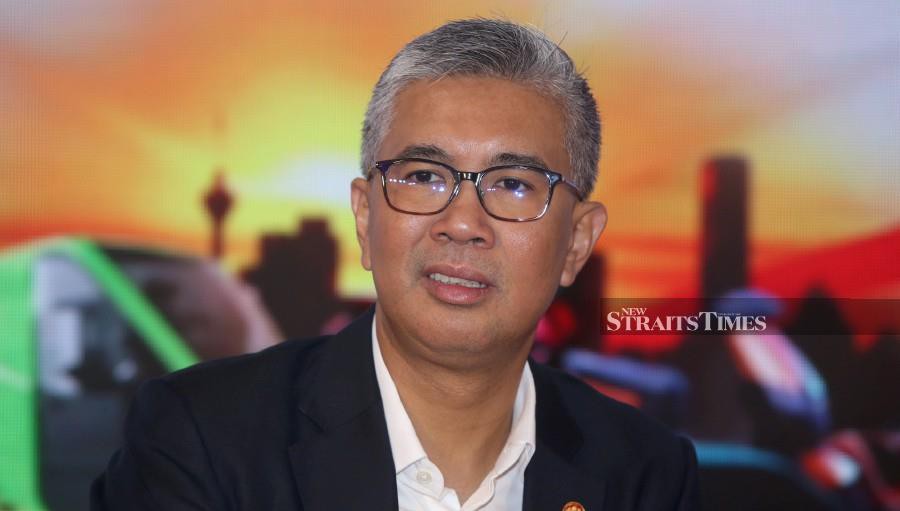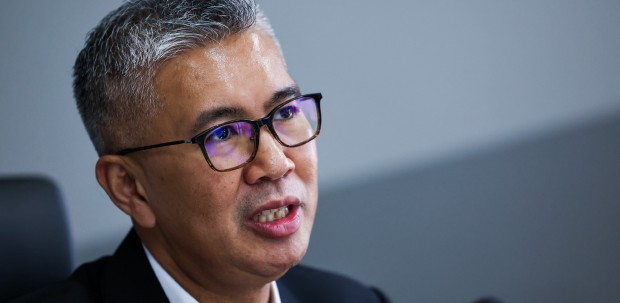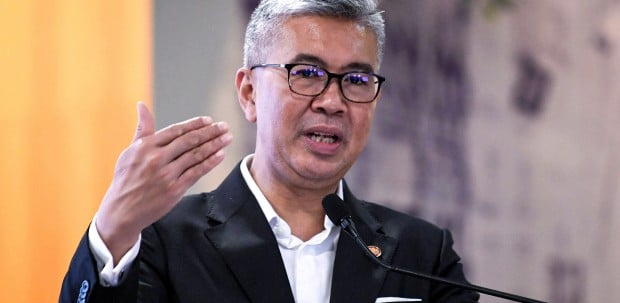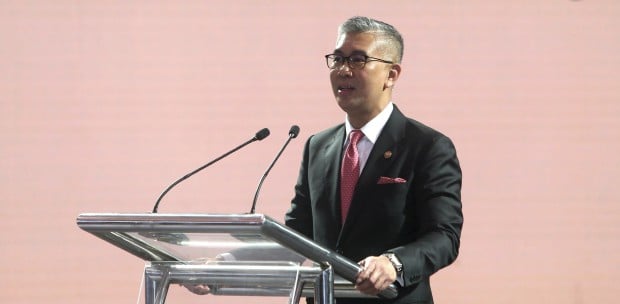KUALA LUMPUR: The success of Malaysia's Asean chairmanship in 2025 will depend on robust support from the private sector including business players and industry leaders, said Investment, Trade and Industry Minister Tengku Datuk Seri Zafrul Tengku Abdul Aziz.
Tengku Zafrul called for a collaborative approach to ensure that Malaysia's ongoing work within the Asean framework aligns with business needs and global standards.
"We strongly believe that consistent engagements with the business community is essential.
"In the lead up to 2025, I am encouraged by the active contributions of the Asean-Business Advisory Council (BAC).
"Several Asean-BAC legacy projects focusing on digital transformation, sustainable development, health resilience, food security, trade and investment facilitation, and supply chains demonstrate the business community's recognition of Asean's positive impact.
"I hope this momentum continues well into Malaysia's chairmanship in 2025," he said in his opening address at the Asean Business Club: "Expectations of Malaysia's Upcoming Chairmanship of Asean" today.
In this case, Tengku Zafrul said his ministry will ensure that Malaysia's national economic interests align with Asean goals, while delivering clear benefits to the region's industries.
He also hopes to continue propelling Malaysian businesses to expand regionally and globally and attract more high-quality and high-impact investments to accelerate national and regional economic growth.
Commenting further, Tengku Zafrul said Malaysia can significantly increase investments in Asean by effectively leveraging three key megatrends.
He noted that the first trend is derisking or deglobalisation, where decisions on production locations, supply chain redesign, shareholding and senior management hiring are influenced by factors beyond profit maximisation, such as nearshoring, onshoring and friendshoring.
"Investors, exporters, countries and economic blocs must carefully position themselves in a multipolar world
where the new power equilibrium or world order remains uncertain.
"The shifting geopolitical landscape, including trade tensions and changing alliances, could drive Asean's increasing trade and investment flows," he said.
The minister highlighted that the second trend driving investment growth in Asean is the global push for net-zero emissions.
He noted that this is inevitable transition presents new investment and trading opportunities centred around a greener future, including carbon credits, certificates, currents or charging capabilities.
Meanwhile, Tengku Zafrul said the third trend is digital transformation as the Asean digital economy is expected to grow up to three times to US$1 trillion by 2030.
He added that digital transformation and innovation are central to Asean's reindustrialisation efforts.
Speaking at the same event, Asean Business Club president Tan Sri Dr Munir Majid said expectations for Malaysia's upcoming chairmanship of Asean are high but there is also a risk of disappointment.
He said while Malaysia holds the chairmanship, it is important to be realistic about the one-year timeframe and the extent to which reforms can be implemented.
He stressed that change takes time, and it is crucial not to expect immediate transformation.
Munir also said there are expectations for Malaysia to play a proactive role in addressing regional challenges, including South China Sea tensions, during its tenure as chair.
He said it is imperative to address these tensions diplomatically to prevent escalation and ensure regional stability.
Munir also stressed that Asean must take proactive measures to maintain stability in the region, particularly in the face of potential disruptions in China-US relations.
He said this includes fostering diplomatic dialogue and cooperation among member states.
"The stability of relations between China and the US is critical for regional and global business interests.
"Any instability or conflict between these two major powers could have significant repercussions on the global economy," he noted.





